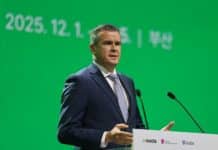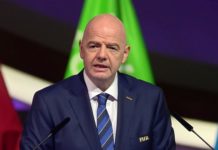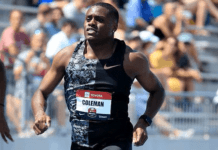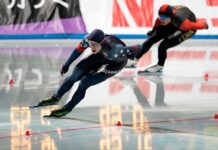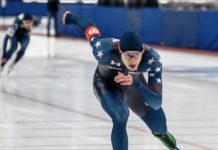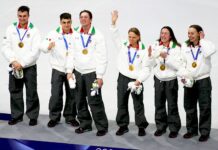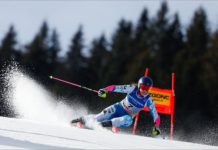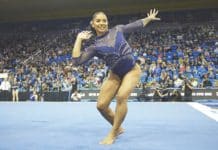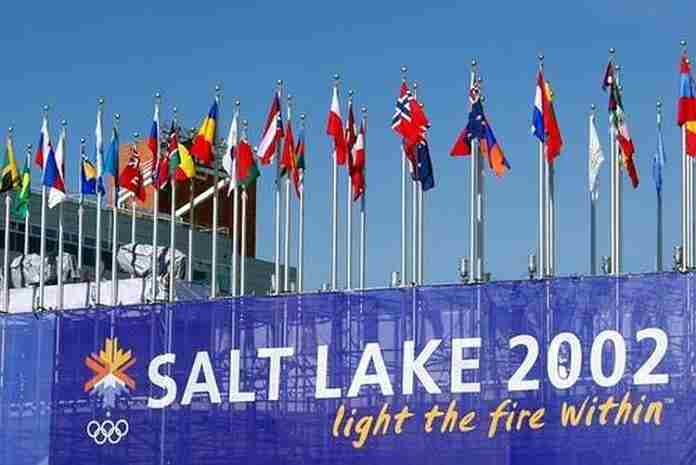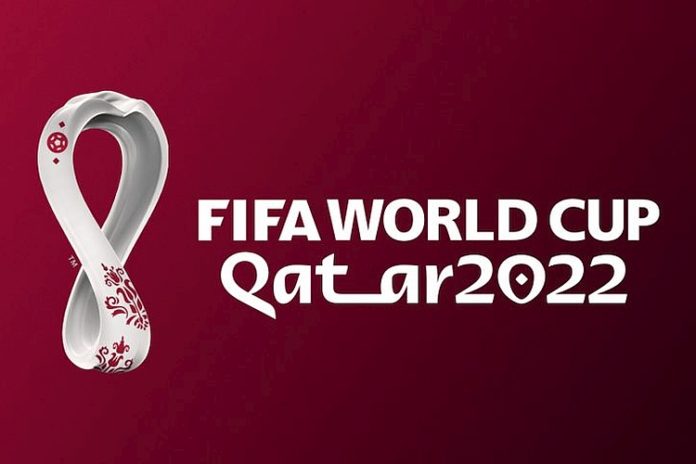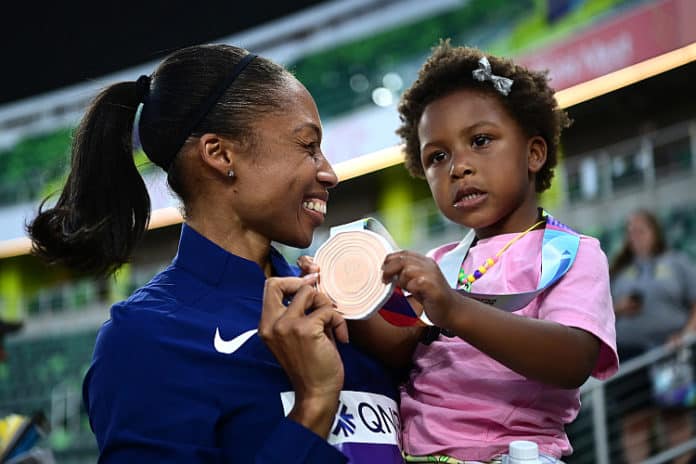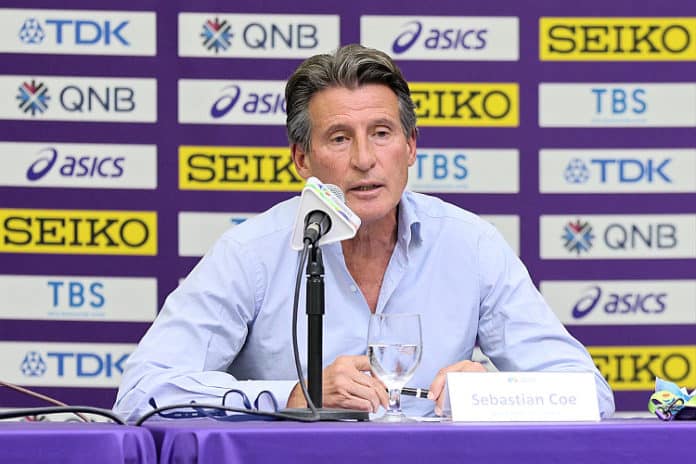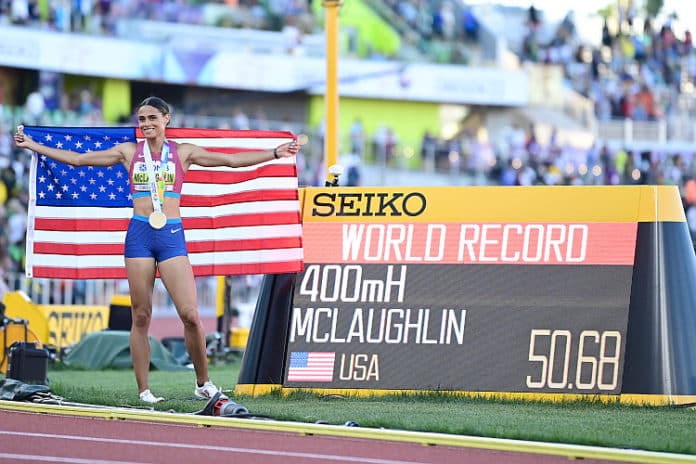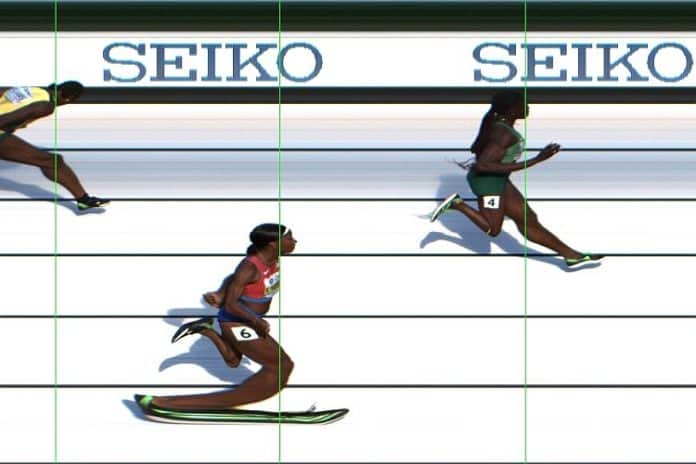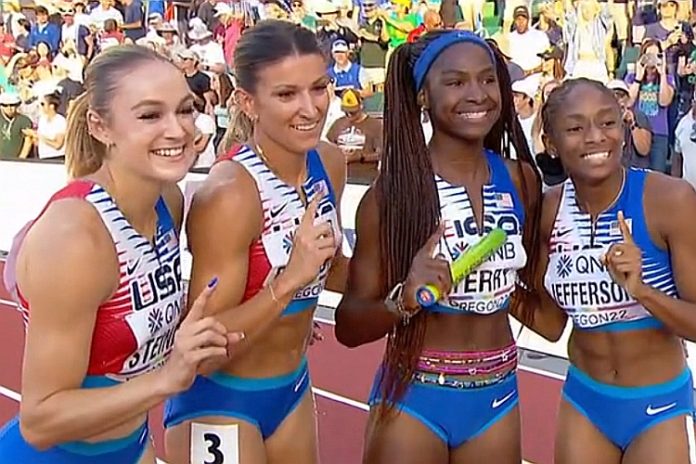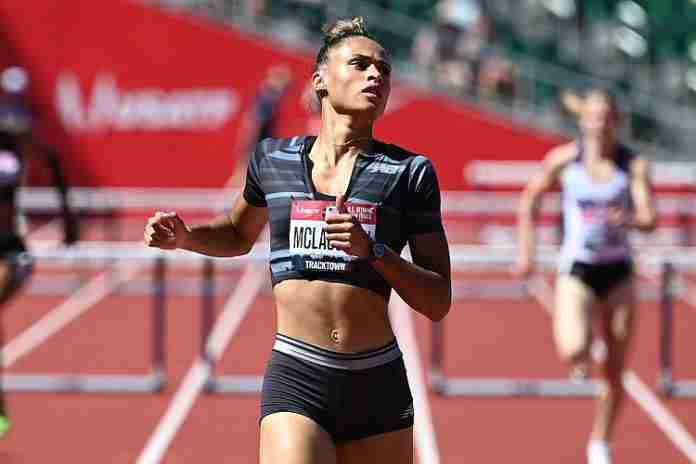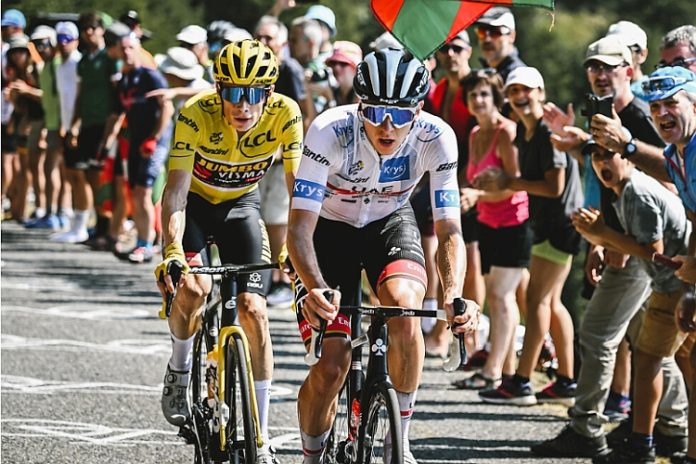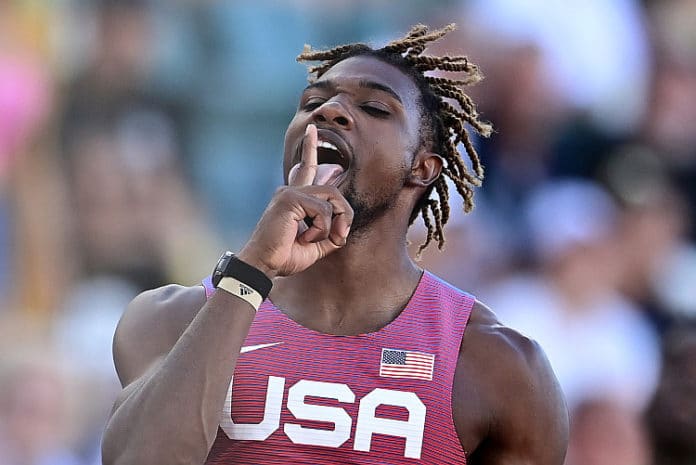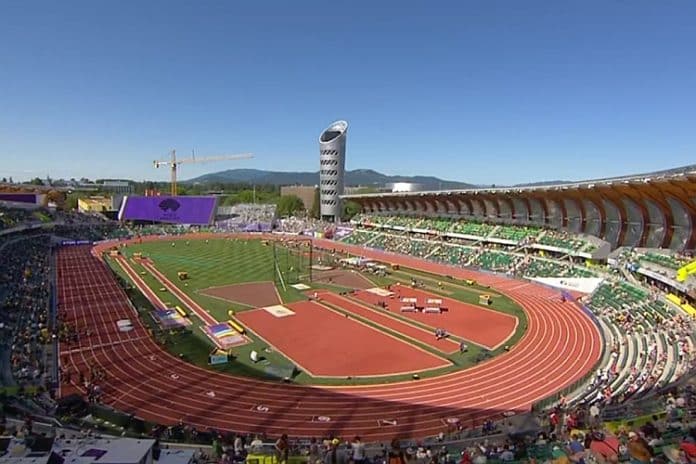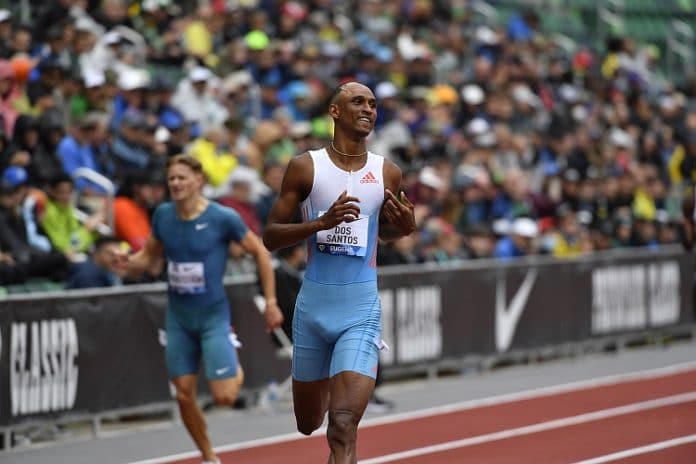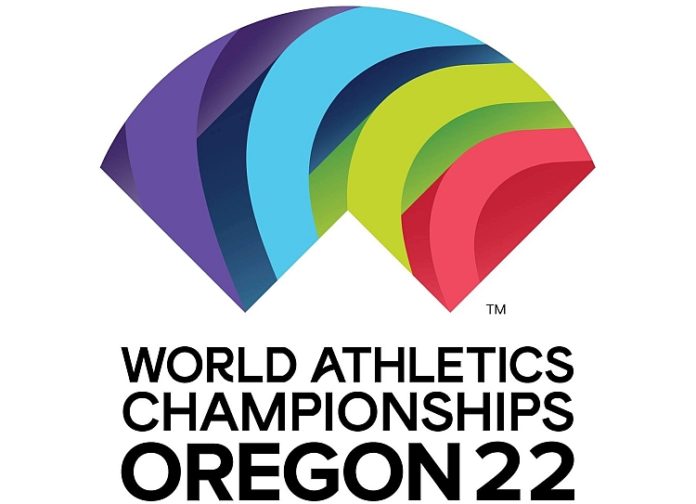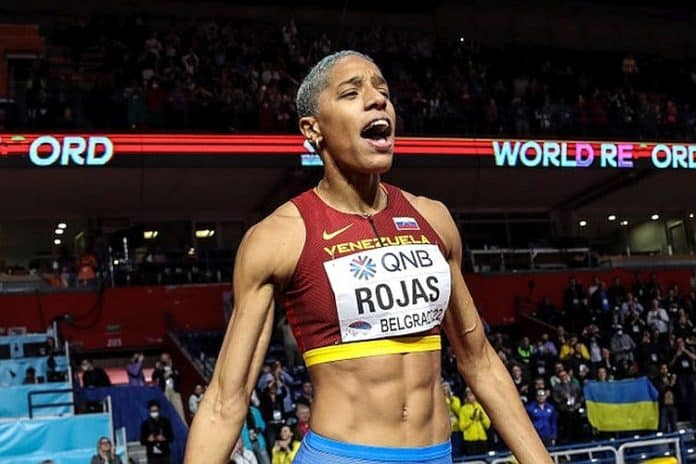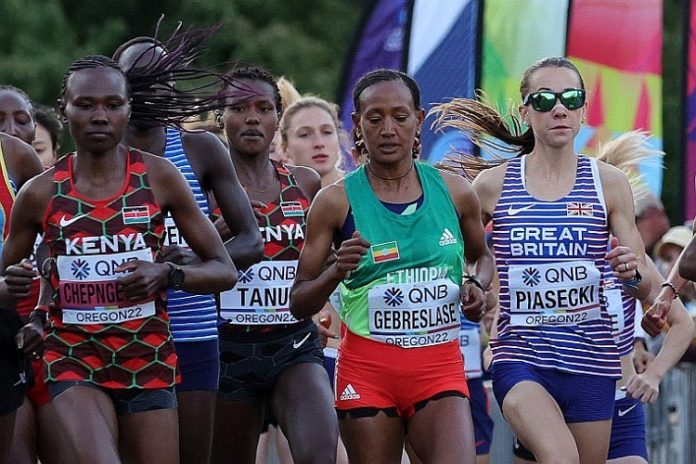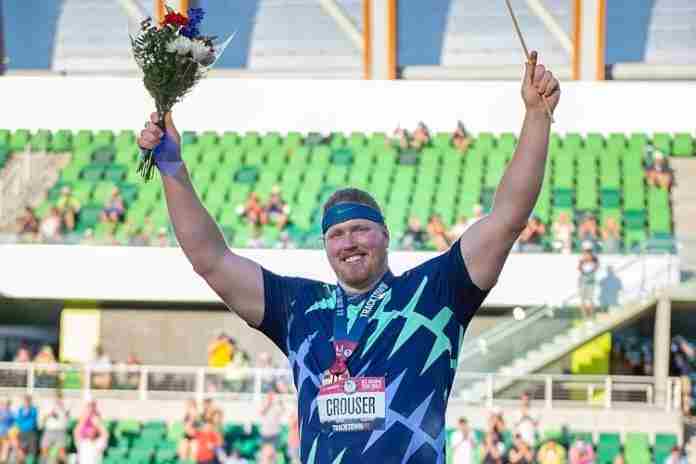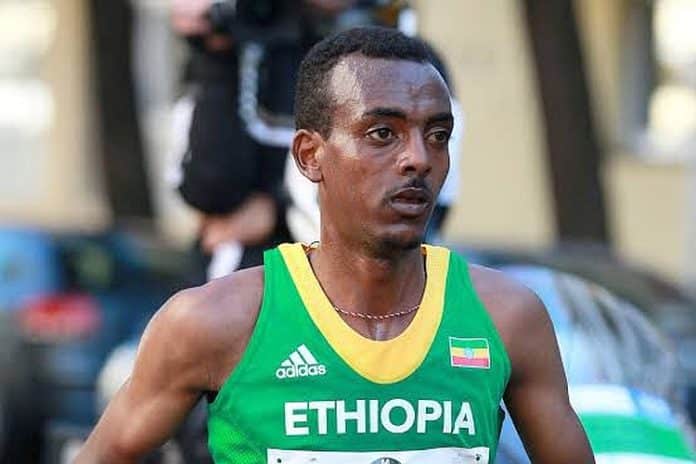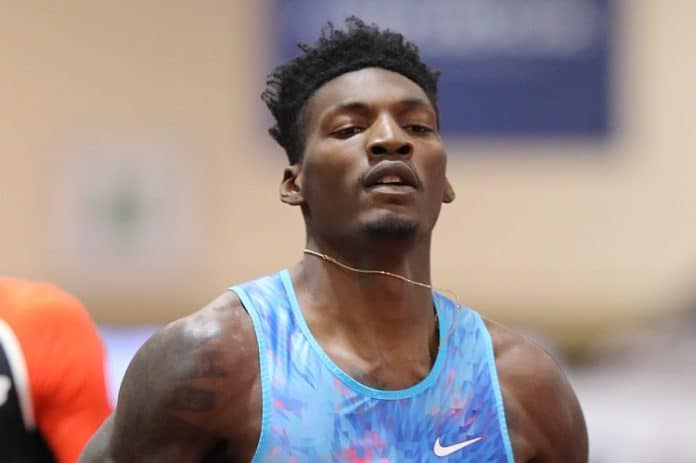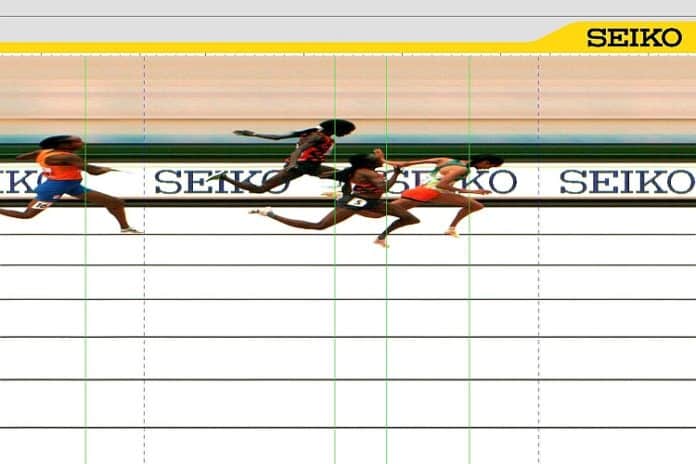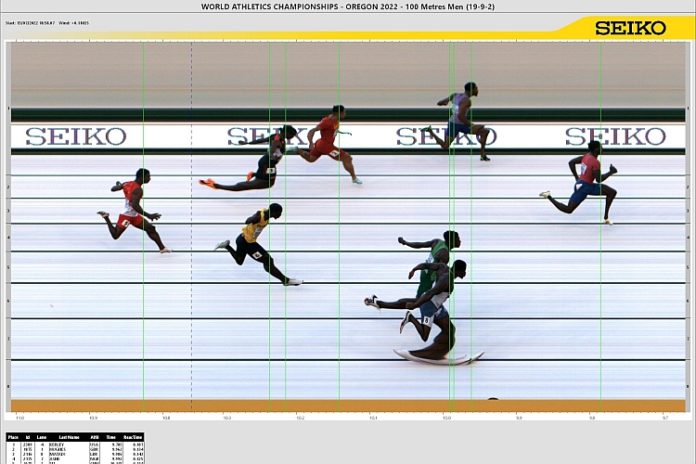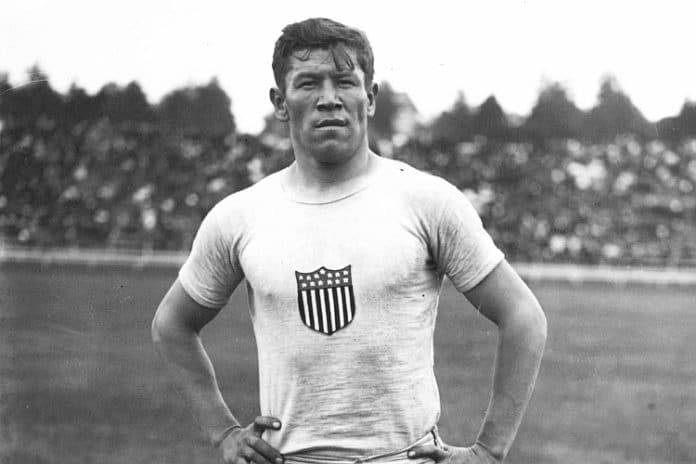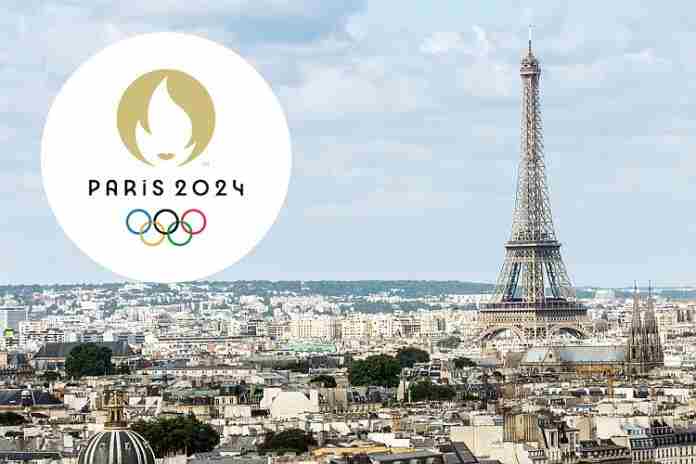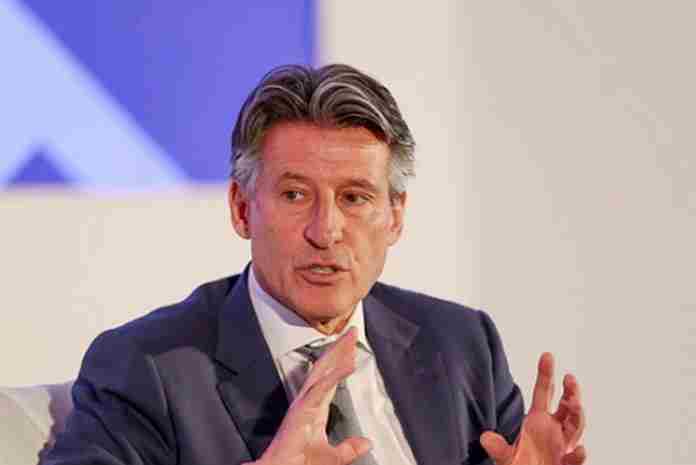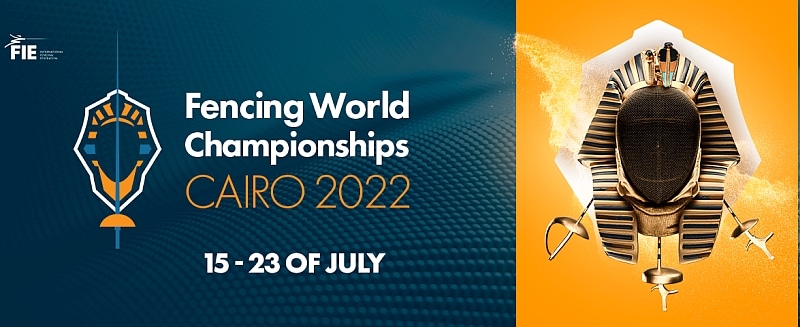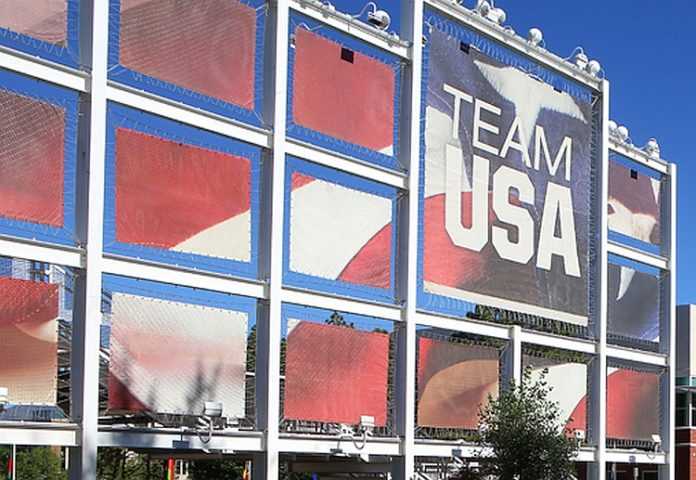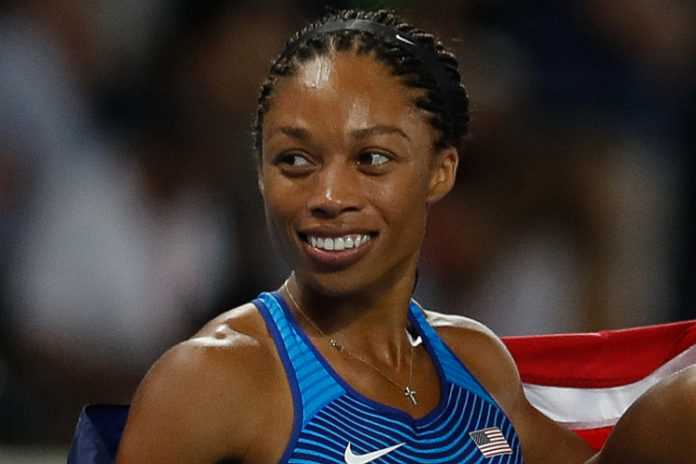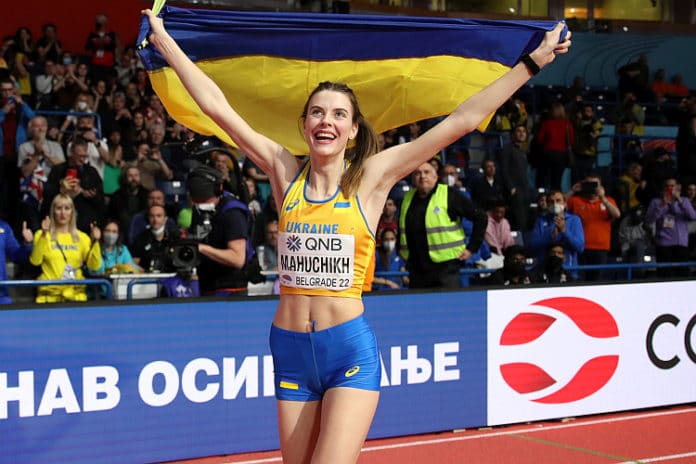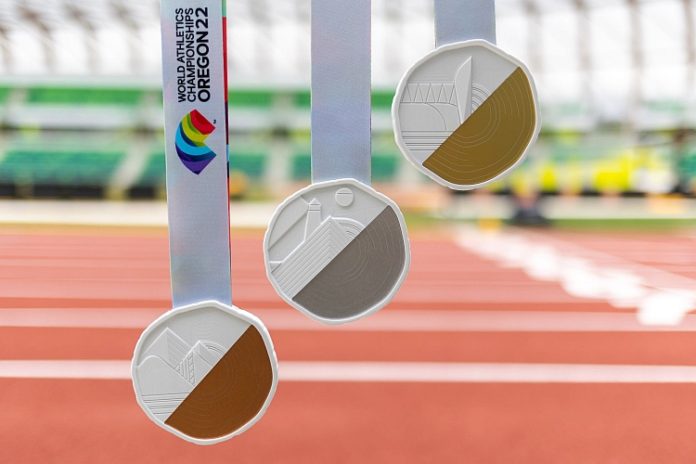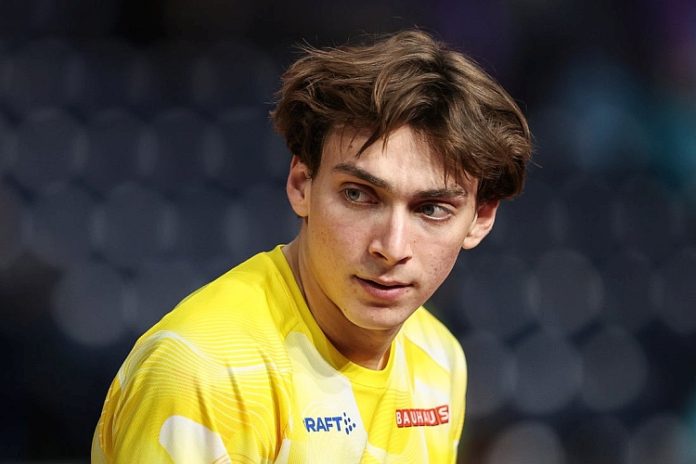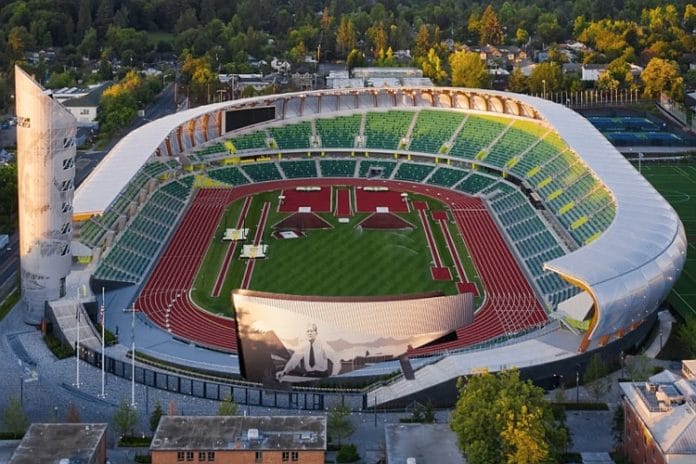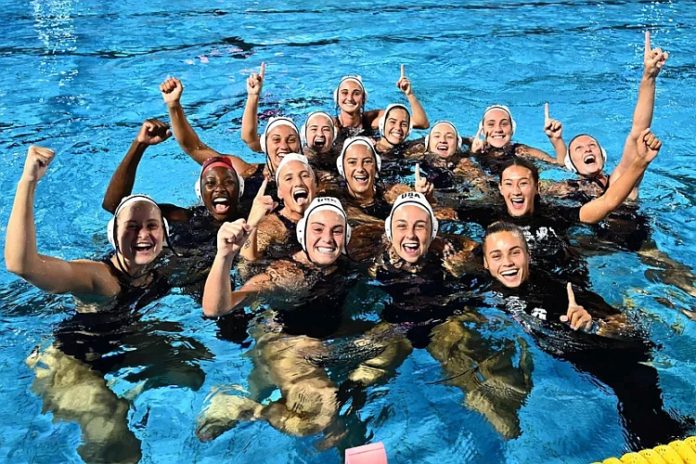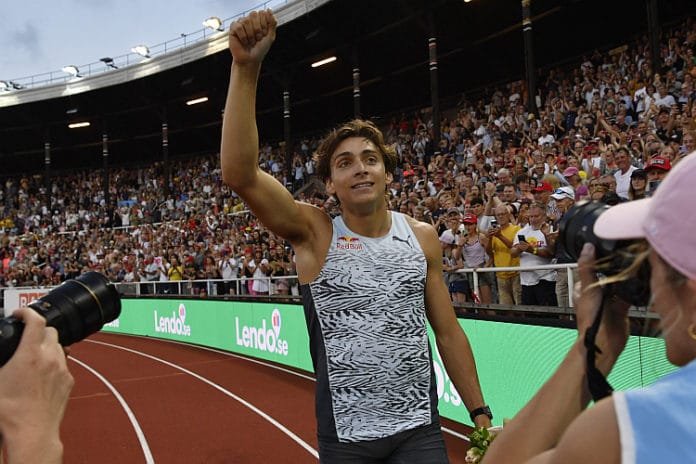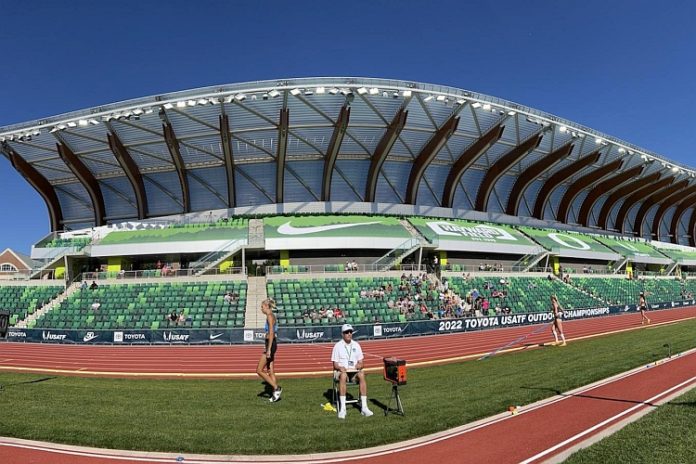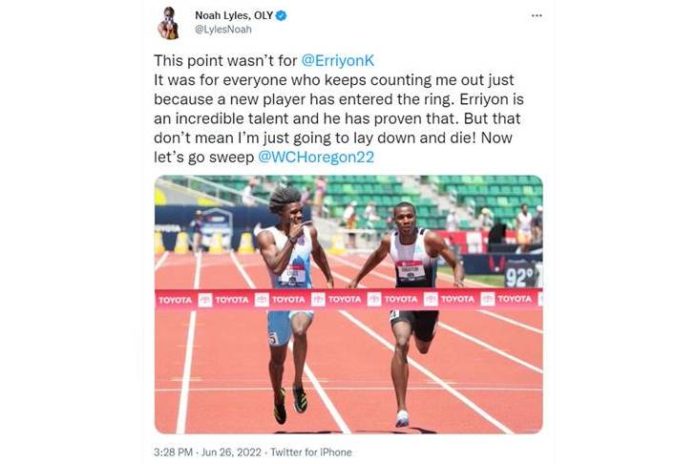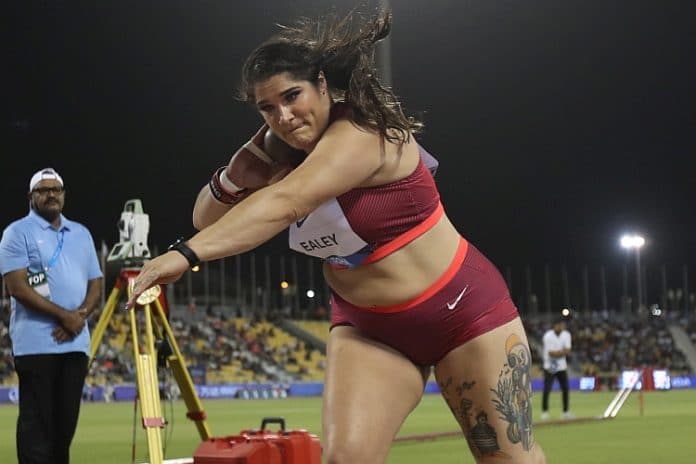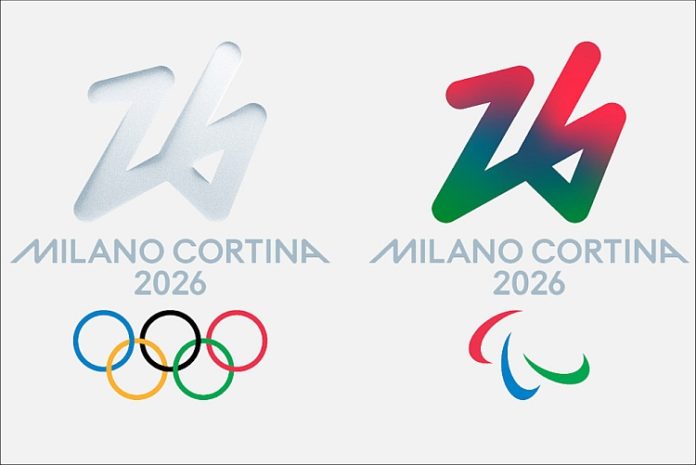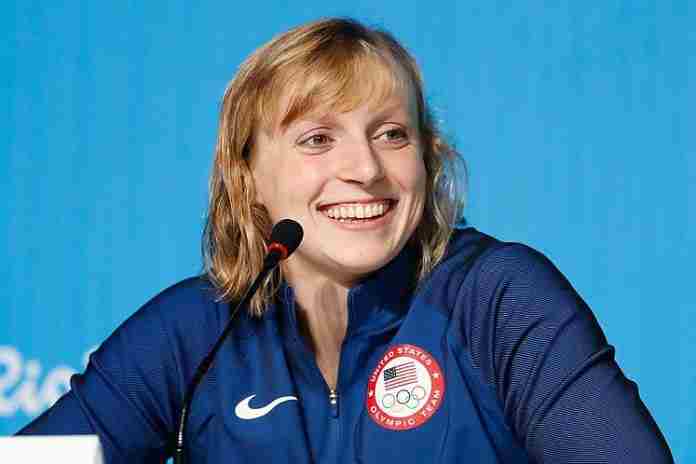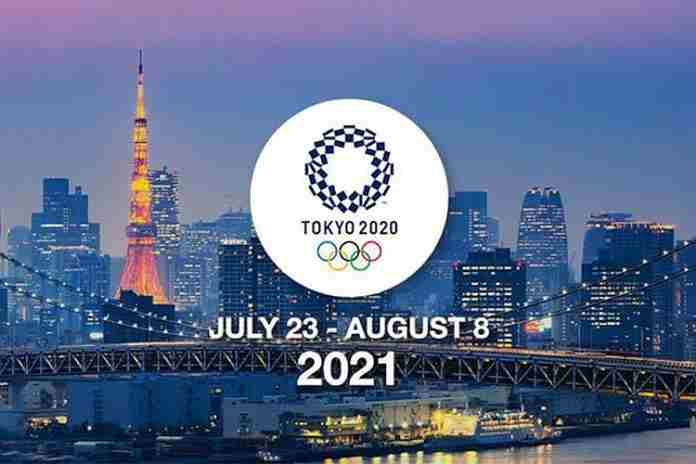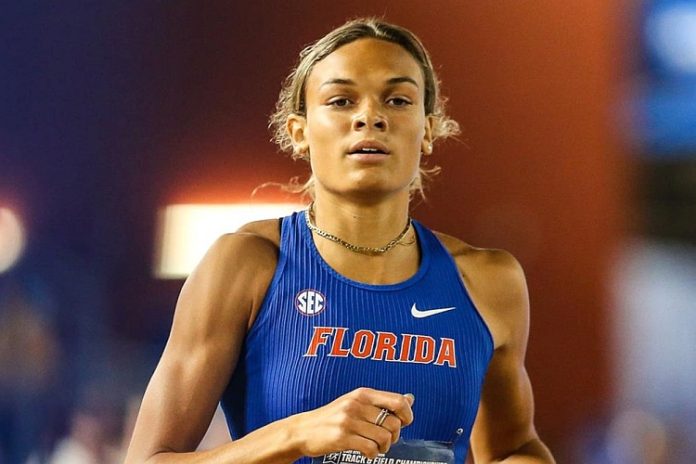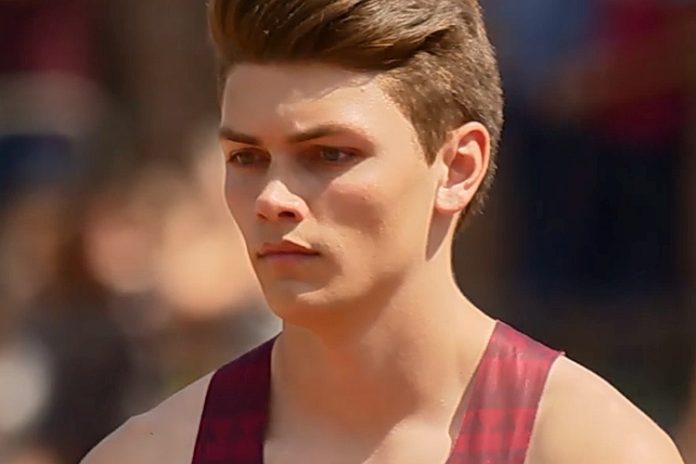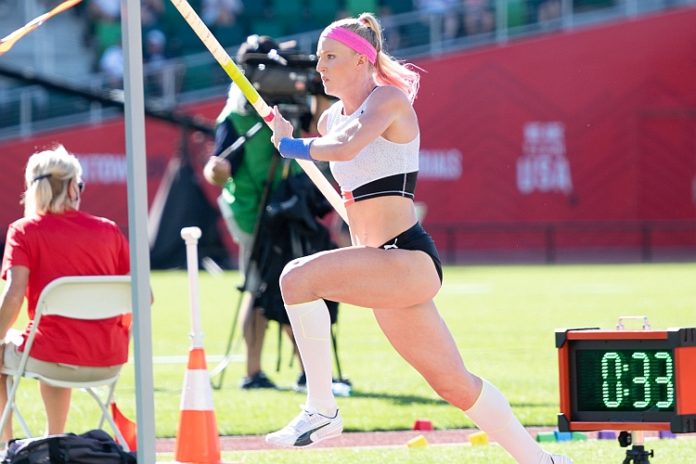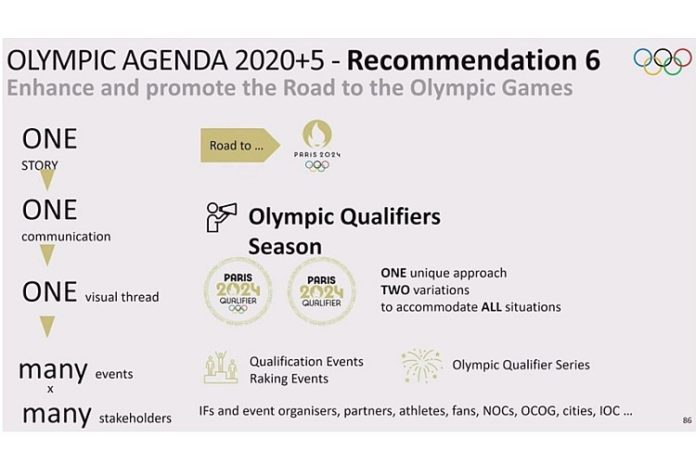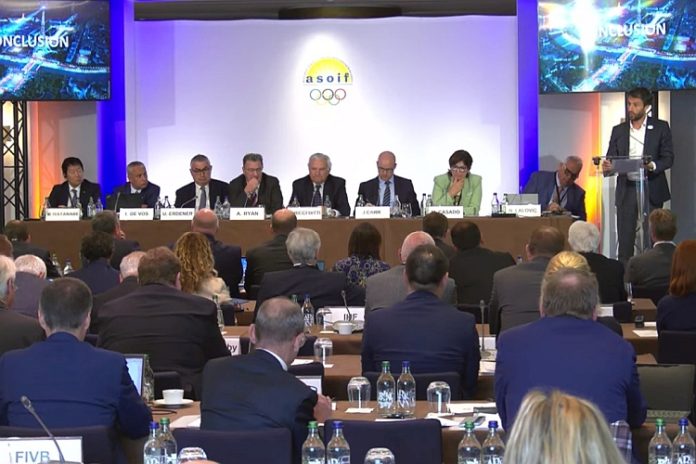★ The Sports Examiner: Surveying, monitoring and explaining the key competitive, economic and political forces shaping elite sport and the Olympic Movement. ★
Thank you to our 21 donors, who have covered 25% of our summer funding goal for operating costs. Will you help? Please donate here. Comments? Click here.
★ To get The Sports Examiner by e-mail: sign up here! ★
≡ THE 5-RING CIRCUS ≡
1. Deseret News poll shows 79-16% favor Salt Lake 2030 bid
2. Paralympics receives bids for 33 sports to be held at LA28
3. McKeon sets career Commonwealth Games medals mark with 19
4. Cheptegei withdraws from Commonwealth 10,000 by letter!
5. Swimming breaks through: 572,000 watched Nationals highlights
Costs less. Tastes great. That’s essentially the pitch of the Salt Lake City bidders for 2030 or 2034, especially after an independent poll found Utahans were in favor of the Winter Games returning by 79-16%. Wow. The International Paralympic Committee reported that a record 33 federations have asked to be on the Los Angeles 2028 Paralympic program; the decision will be made next year. At the Birmingham Commonwealth Games, Australian swim star Emma McKeon became the most-medaled athletes in Games history, winning her 18th and 19th medals on Tuesday. But not everyone is happy, as six Gambian athletes missed their first events with visa troubles, and the head of one delegation told his team to do better. USA Swimming can smile, as after seeing very little viewership of its Nationals on the to-be-shuttered Olympic Channel, a highlights show on NBC drew 573,000 viewers on Sunday!
1.
Deseret News poll shows 79-16% favor Salt Lake 2030 bid
A new poll released Monday by the Deseret News and Hinckley Institute of Politics at the University of Utah showed that 79% of the state residents favor the return of the Olympic Winter Games to Salt Lake City in 2030 or 2034.
The survey was taken from 13-18 June from 801 registered Utah voters with a margin of error of 3.46%. The results showed 44% strongly in favor of the bid to just 8% strongly against, and 35% somewhat-in-favor vs. 8% somewhat against. That’s 79-16 in total, with 5% having no opinion.
That’s impressive and backs up polls previously done by the bid committee and the U.S. Olympic & Paralympic Committee. It also separates Salt Lake City from the tepid bid support in Sapporo (JPN: 52-57% in March) and Vancouver (54% in July); the proposed Salt Lake City budget is also lower than the projections for Sapporo or Vancouver.
The Salt Lake City-Utah Committee for the Games expects to spend just $2 million or so in private funds on its bid effort. Said bid chief Fraser Bullock, who served as the Chief Operating Officer of the 2002 Olympic Winter Games:
“I still strongly believe that we’ll be awarded either ’30 or ’34. We are one of the best cities in the world to host a Games, for all the reasons we all know about, whether it’s compact Games, whether it’s the unified support, whether it’s excellent economics — or just the love of the Games in Utah.”
2.
Paralympics receives bids for 33 sports to be held at LA28
The first-ever Paralympic Games to be held in Los Angeles is already a hit with the Paralympic sport federations, with a record 33 sports signaling their interest to the International Paralympic Committee in being part of the Los Angeles 2028 sports program.
For Paris in 2024, 22 sports will be part of the program and all have requested to continue: Archery, Athletics, Badminton, Blind Football, Boccia, Cycling, Equestrian, Goalball, Judo, Paracanoe, Paratriathlon, Powerlifting, Rowing, Shooting, Sitting Volleyball, Swimming, Table Tennis, Taekwondo, Wheelchair Basketball, Wheelchair Fencing, Wheelchair Rugby and Wheelchair Tennis. Potential new sports for 2028 include:
● Arm wrestling
● Beach ParaVolley
● Climbing
● CP (cerebral palsy) Football
● Golf
● Karate
● Para Dance Sport
● Powerchair Football
● Sailing
● Surfing
● Wheelchair Handball
Next up: “Over the summer the IPC will review the applications in accordance with the IPC Handbook and identify areas for further clarification from applicants where needed. The IPC will also work closely with LA28 to analyse the potential impact of sports on the programme. A final decision on which sports make up the LA28 Paralympic Games sport programme will be taken by the IPC Governing Board by the end of January 2023.”
The 2028 Paralympic Games is scheduled for 15 to 27 August 2028.
3.
McKeon sets career Commonwealth Games medals mark with 19
The swimming competition at the new Sandwell Aquatics Centre at the 2022 Commonwealth Games has turned out to be not only about this year, but the all-time lead in career medals.
On Tuesday, South Africa’s Chad LeClos missed a chance for a 19th career Commonwealth Games medal, which would have broken a tie he had with shooters Philip Adams (AUS) and Mick Gault (ENG). But he finished fourth in the men’s 100 m Butterfly, with rising Canadian star Josh Liendo winning in 51.24.
Meanwhile, Australia’s Emma McKeon – already the all-time Commonwealth Games record holder with 12 career golds – won a bronze in the women’s 100 m Free (52.94) to also get to 18 career medals. (Fellow Australian and World Champion Mollie O’Callaghan won in 52.63).
But McKeon closed the session with a win – on anchor – in the Mixed 4×100 m Medley Relay, giving her 19 career medals (13 gold) and the all-time Commonwealth Games career mark. South Africa, with LeClos on third leg, finished fourth.
Also, South Africa’s Lara van Niekerk won the women’s 100 m Breaststroke to add to her 50 m Breast title and England’s Adam Peaty – coming back from a broken foot – won the 50 m Breast in 26.76 after finishing a disappointing fourth in the 100 m Breast (in which he is the world-record holder). Australian distance star Ariarne Titmus won the women’s 800 m Free in 8:13.59 to give her three golds for the meet with one day left.
The Track Cycling program closed with New Zealand’s Ellesse Andrews the women’s star, winning the Sprint, Keirin and Team Sprint for three golds. Fellow Kiwi Aaron Gate won three golds on the men’s side, in the Individual Pursuit, Points Race and Team Pursuit.
4.
Cheptegei withdraws from Commonwealth 10,000 by letter!
Uganda’s Joshua Cheptegei is the world record holder in the men’s 10,000 m, the 2019 and 2022 World Champion at the distance and the defending Commonwealth Games champion from 2018. But he did not contest the event in Birmingham, withdrawing by letter sent to the President of the Uganda Athletics Foundation on 28 July and posted on Twitter on Tuesday.
A phone call, text or e-mail wasn’t enough? In his letter, typed, signed and stamped on his personal letterhead, Cheptegei writes, inter alia:
“Since the 10,000m gold achievement at the Worlds, my body has demanded and requires some rest and recovery if I am to embark on future prospects and plans including the World Cross Country Championships early next year and World Championships in Athletics again later in the summer next year.
“I am really sad to have to withdraw from the Games. I was really looking forward to defending my title, especially at the 5000m event. I have endured some illness which has set back my training program and would not love to aggravate it.”
He expressed full confidence in Uganda’s Jacob Kiplimo, the Tokyo Olympic and Eugene Worlds bronze medalist and Kiplimo came through, winning Tuesday’s 10,000 m final in 27:09.19, ahead of Daniel Ebenyo (KEN: 27:11.26) and Kibiwott Kandie (KEN: 27:20.34).
There have been other disappointments in Birmingham:
● The BBC reported that five sprinters from Gambia missed the heats of the men’s and women’s 100 m due to visa issues, as well as a judoka. All six were coming from France, but were not able to enter Great Britain in time for Tuesday morning’s heats.
● The head of the Sierra Leone National Olympic Committee, Dr. Patrick Coker, had some unhappy words for his athletes after watching swimmers Joshua Wyse and Isha Kanu finish 52nd in the men’s 50 m Fly and 33rd in the women’s 50 m Breaststroke, respectively, in Birmingham:
“Let me start by congratulating you and the team so far for disciplinary behaviour. I know it is difficult for us to compete against big nations like Australia and England in the pool but we have to do more. The performance so far tells us we need to do more and with the support we are getting from the government we need to be on the right track.”
It’s not all about hugs and orange slices when government funding is involved in Sierra Leone.
5.
Swimming breaks through: 572,000 watched Nationals highlights
Swimming has had a tough time on U.S. television this year, with no discernible ratings for the FINA World Championships on the soon-to-be-shuttered cable Olympic Channel. Same for the five-day USA Swimming National Championships in Irvine last week, also shown on the Olympic Channel.
But the sport did get a pretty good viewership on Sunday, 31 July, with a highlights show of the event drawing 572,000 viewers on NBC at noon Eastern. In case you missed it, it will be on again on Saturday (6th) at 3 p.m. Eastern.
Also doing well as the UEFA Women’s Championship between England and Germany, which drew 885,000 viewers on Sunday morning at 11:30 a.m. on ESPN. The semifinals did not do nearly as well: 278,000 for England-Sweden and 292,000 for Germany-France.
≡ PANORAMA ≡
● U.S. Olympic & Paralympic Committee ● USA Triathlon’s Chief Executive Officer Rocky Harris has been hired as the USOPC’s Chief of Sport and Athlete Services, in charge of a large portfolio that includes athlete care, competition support including international Games operations, the USOPC training centers, sports medicine, and liaison with the National Governing Bodies.
Harris has long experience in these areas, serving as the head of USA Triathlon since mid-2017. He previously was the Chief Operating Officer for Arizona State’s athletics department and the Senior Vice President of the Houston Dynamo of Major League Soccer.
It’s a big job; Harris will begin in September.
● Athletics ● Russian Anzhelika Sidorova, the 2019 World Champion, won her sixth national women’s pole vault title in Cheboksary on Tuesday (2nd), clearing a world-leading 4.91 m (16-1 1/4) on her third try. She already had the highest vault, at 4.86 m (15-11 1/4) from a meet in Moscow on 19 July.
● Basketball ● Two-time Olympic gold medalist Brittney Griner appeared in a Moscow-area court on Tuesday for the seventh time in her trial for “drug smuggling,” with her attorneys citing errors and omissions in her detainment process and prosecution.
Griner is expected back in court on Thursday and the trial could go to closing arguments by the end of the week.
¶
In all of the tributes to the late, great Bill Russell, the two-time NCAA Champion at USF and 11-time NBA Champion with the Boston Celtics, his gold-medal performance at the 1956 Olympic Games in Melbourne is mostly overlooked.
Russell dominated the Olympic basketball tournament just as he dominated everywhere else. Although not known for his scoring, he led the team at 14.1 points per game and the U.S. was a stunning 8-0, outscoring its opponents by 793-365 or an average of 99-46. Russell shot 48% from the floor at the Games, better than his NBA career average of 44%.
And in the showdowns with the USSR, the European Champions in 1951 and 1953, and 1955 runners-up? Russell and the U.S. won by 85-55 in the quarterfinal pool round and then in the final by 89-55. Rebounds were not kept in those days, but a sign of Russell’s defensive prowess was that he was called for just five total fouls in eight games, while playing center.
Dominant and dignified, just as he was during his NBA career and afterwards.
¶
You can receive our exclusive TSX Report by e-mail by clicking here. You can also refer a friend by clicking here, and can donate here to keep this site going.
For our updated, 620-event International Sports Calendar for 2022 and beyond, by date and by sport, click here!







